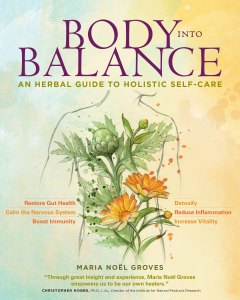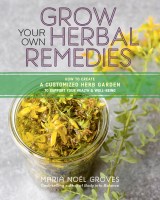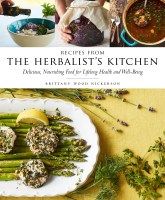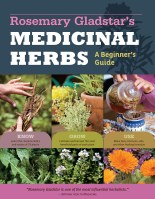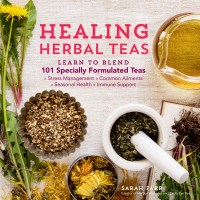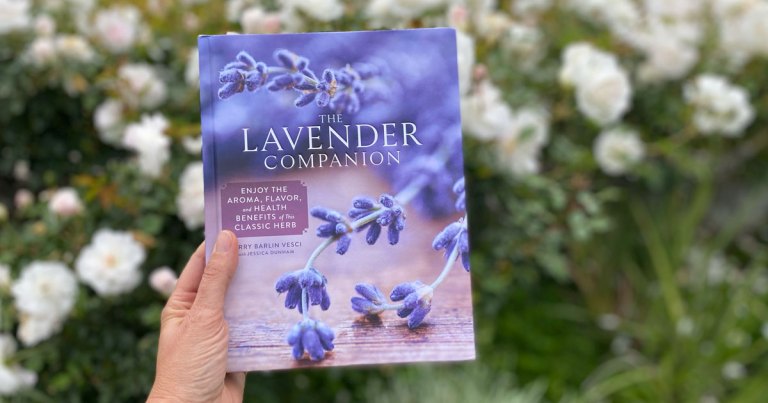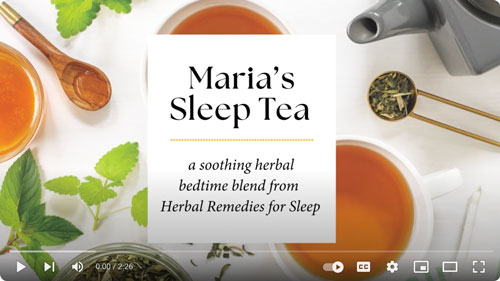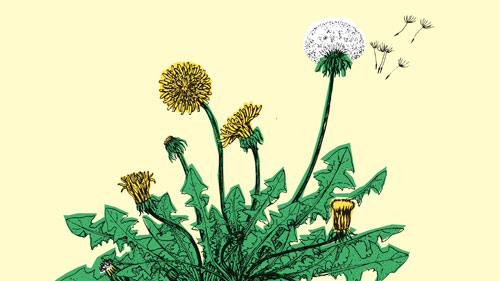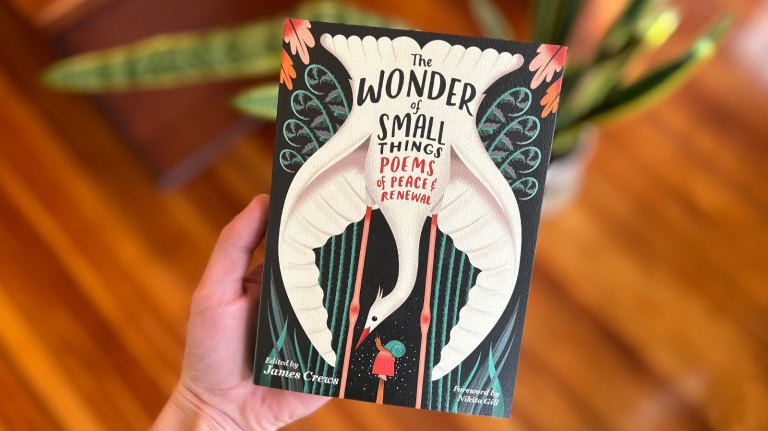Herbal Tea Blends for Good Gut Health
Tea delivers the medicinal power of herbs directly to the digestive tract, helping to heal gut inflammation, irritation, and damage.
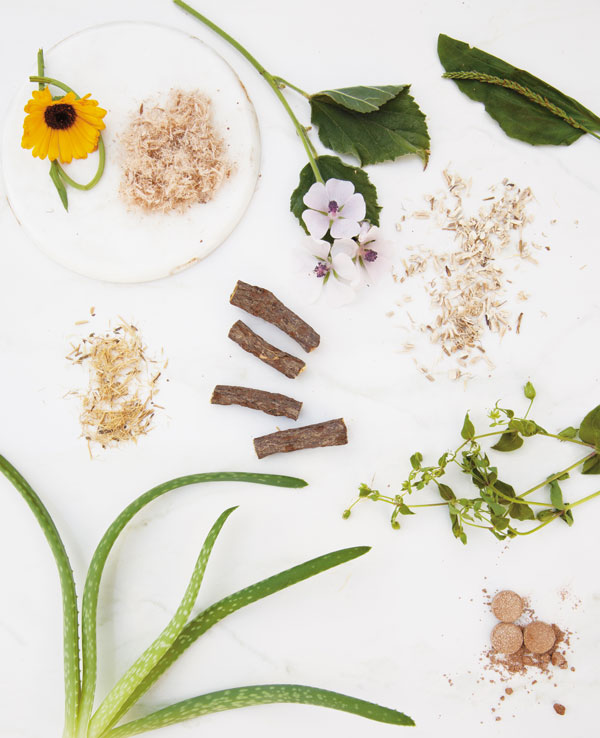
Digestive woes are incredibly common — there’s a reason the chapter on the digestive system is the longest one in my book, Body into Balance. One of my favorite ways to soothe and help heal the gut is with tea. Tea delivers the medicinal power of herbs directly to the entire digestive tract, and tastes yummy enough to drink daily. Over the long haul, teas can be effective remedies for conditions where the gut is inflamed, irritated, or damaged — from heartburn, ulcers, gastritis, leaky gut, irritable bowel syndrome (IBS) to inflammatory bowel disorders (IBD) like Crohn’s and colitis. While more serious concerns may require more intensive therapies, it’s impressive how much a gut tea can do over time, especially when you customize your blend to your needs.
Here are some of the key categories of herbs — and their healing properties — that work well in teas for gastrointestinal health.
Soothing Slimers
If this category sound off-putting, you can always resort to the technical term: mucilaginous demulcents. The herbs in this category are so called because they become slimy and mucous-like in water, temporarily coating the digestive tract when consumed in gruel or tea. This activity helps to soothe inflammation and — with long-term use — gives the gut the opportunity to improve and repair its natural mucous-rich lining.
Some herbs are really slimy. Slippery elm bark is queen in this category, but marshmallow root is a good alternative (I prefer marshmallow because it’s more affordable, tasty, and sustainably harvested). Licorice root has some mucilaginous properties in addition to more profound gut-healing and antimicrobial actions. However, it can also throw off blood pressure and reproductive hormones; for this reason, I tend to use it sparingly in a gut tea or skip it entirely. DGL licorice chewables are extremely useful and do not contain the compound in licorice (glycyrrhizin) that poses health and drug interaction risks. For mildly slimy, tea-friendly herbs, consider using plantain leaf, cinnamon bark, and violet leaves.
Extraction: Mucilage is best extracted in cool or tepid water over the course of several hours.
Gentle Astringents
Astringent herbs tighten and tone tissue that has gotten boggy or leaky, which can occur with chronic diarrhea or leaky gut syndrome. Though hyperpermeability should be addressed, your gut needs to retain some amount of permeability to function properly and absorb nutrients. The mild tannins in rose family plants excel at this, which makes a sprinkle of rose petals one of my favorite ingredients for tea. Not only do they look lovely, they gladden the heart while toning the gut. Other flowers and leaves in the rose family also tone gut tissue, including raspberry leaf, lady’s mantle leaf, and strawberry leaf. Plantain leaf is also mildly astringent. Cinnamon is moderately to significantly astringent, depending on how much you use, while still generally safe to consume long term.
Extraction: Tannins are best extracted in hot water.
Vulneraries
“Vulnerary” is a fancy word for “wound healer.” Many of the herbs we use topically for cuts, scrapes, and rashes also heal the gut when consumed. Calendula flowers are a favorite among herbalists, though I tend to avoid it for tea due to daisy-family allergies, price, and the flowers’ bitter flavor. Instead, I turn to plantain leaf. This common weed is most widely used as a poultice for bug bites and bee stings, but it’s also excellent for the gut. Also consider gotu kola aerial parts. In addition to its wound-healing properties, gotu kola taken long term eases stress and anxiety and improves focus and cognition.
Extraction: These herbs extract well in a variety of situations.
Spices
Chai-like spices do more than just add flavor to your tea. They come with their own healing properties. Cinnamon bark, in addition to being a potent astringent, helps lower blood sugar, and is antimicrobial and anti-inflammatory. I use cinnamon chips or sticks, rather than combining ground cinnamon with water. Clove is a potent antimicrobial and pain reliever. Cardamom stimulates digestive juices and eases intestinal spasms and gas. Star anise tastes deliciously sweet and adds antimicrobial activity. Fennel seeds are excellent for easing intestinal spasms, gas, and pain. Ginger root is warming, stimulates digestive juices eases gas, and fights intestinal bugs while encouraging beneficial bacteria. To further combat microbial imbalance and yeast overgrowth, you might add pau’d arco bark.
Extraction: These herbs extract best when infused for at least an hour or simmered for at least 15 to 20 minutes.
Additional Herbs
You could try nutritious herbs like nettle and oat straw, or stress-relieving herbs like holy basil, lemon balm, ashwagandha, gotu kola, or codonopsis. Or, if you want to support gently detoxification, consider burdock root. For an immune tonic, astralagus root works well. Any and all of these will taste fine with the other herbs in your tea.
Below is a gut-healing herbal tea blend that will give you a good starting point. Adapt it to suit your tastes and your body’s needs.
Gut Healing Tea
I recommend to my clients that they steep this tea overnight or all day in a French press; or, you can follow one of the alternative brewing options below. If drinking this tea regularly, you can multiply the ingredients for a big batch, and scoop out two heaping tablespoons for a 32-ounce (1-quart) French press as needed.
Ingredients
- 2 teaspoons marshmallow root
- 2 teaspoons plantain
- 1 teaspoon cinnamon chips or 2 cinnamon sticks
- 1 teaspoon rose petals
- 6 cloves
- 2 star anise pods, whole or crushed
- ½ to 1 teaspoon licorice root (optional)
- Pinch of freshly grated nutmeg (optional)
Directions
Method 1: Combine the herbs in a quart-size French press or jar and cover with hot water. Let it steep on the counter, or in the refrigerator overnight or all day. Strain well, squeezing out as much liquid as you can, and drink throughout the day, hot or cold.
Method 2: Combine the herbs in a small pot. Add water, bring to a boil, then reduce the heat and let simmer, covered, for 20 minutes. Remove from the heat and let sit overnight. Strain. Reheat as desired before serving.
Method 3: Prepare the tea as a basic decoction or, though weaker in action, an infusion (steep for 60 minutes or longer, preferably in an insulated thermos).
Gut Healing Tea Recipe Adapted From Body Into Balance © by Maria Noël Groves.
An antacid or an aspirin may soothe your pain, but it doesn’t cure the cause of your symptoms. Headaches, indigestion, fatigue, allergies, anxiety, eczema, high blood pressure, and other conditions are clues to a deeper imbalance in your body, and learning to read those clues is a key step in maintaining optimal health. Herbalist Maria Noël Groves shows you how to read your body’s signals and support your own wellness with herbal remedies and other natural treatments. You’ll learn how each of your major body systems—respiratory, digestive, immune, nervous, memory, reproductive, circulatory, and more—optimally functions, and you’ll discover how to use natural remedies to nourish and repair problem areas, restore lost vitality, support your body as a whole, and prevent future problems. Groves includes in-depth instructions, with step-by-step photographs, for making your own herbal remedies, as well as expert guidance on buying and effectively using commercial preparations.
Silver Nautilus Book Award Winner for Health & Healing
